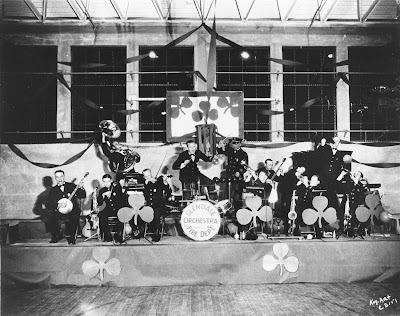 Literary Names of Note This Week
Literary Names of Note This WeekNobel Prize in Literature: novelist Roger Martin du Gard (1937), playwright Dario Fo (1997).
Romance / Western / Historical Fiction Writers: Louis L’Amour.
Graphic Novelists / Cartoonists / Illustrators: J. C. Leyendecker.
Children’s / Teen Authors: Kate DiCamillo.
And, as usual, a myriad of events to read about.
“Home is the place where, when you have to go there, they have to take you in.”
“And now the fancy passes by and nothing will remain, and miles around they'll say that I am quite myself again.“
“Every day a little sting, in the heart and in the head.”
“The penny candy store beyond the El is where I first fell in love with unreality.”
 Answer to Last Week’s Questions: Henrik Ibsen was considered the first modernist playwright who wrote naturalist realism into his problem plays. What do those terms mean?
Answer to Last Week’s Questions: Henrik Ibsen was considered the first modernist playwright who wrote naturalist realism into his problem plays. What do those terms mean?In this day and age, when we have such terms as Reality TV, (which is, after all, a hyper-romanticized and oft scripted pretense taking its viewers out of their every day reality rather than reminding them of it), it is very easy to become confused about the terms that defined literary and artistic movements in the nineteenth century. Broadly speaking naturalist realism was a step in the movement from divinely centered to human centered views of life, and from escapism to objective depiction of real social and personal issues.
In theatre Henrik Ibsen was one of the first to move beyond the safe well-made play, the generally overblown or staid drama and melodrama of the time. His dramas, (most of which he wrote in Italy instead of his home country, Norway,) caused both controversy and newly liberated interest as they dealt with such things as adultery and sexually transmitted disease. But Ibsen also wrote symbolic and poetic plays.
Though Shakespeare had shown psychological perception in many of his own works three hundred years earlier, the term problem play came to mean those dramas that focused on social and interpersonal conflict rather than philosophical, religious, or comedic experience. Shortly after Ibsen's time writers began to talk of themselves as modern and the modernist movement carried on into the twentieth century where it was met with deconstruction and ultimately postmodernism.











